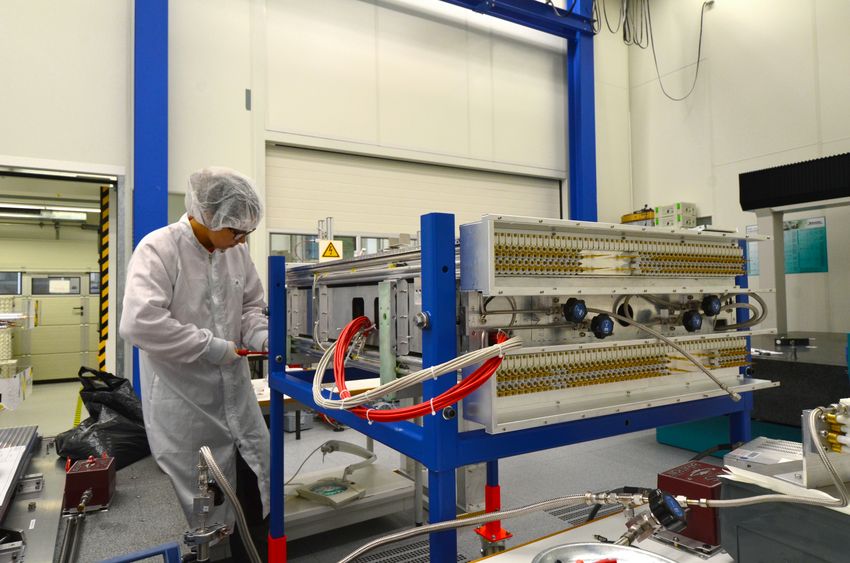With the ATLAS experiment at the LHC, scientists are trying to find an explanatory model for the origin of matter and forces in the universe. To that end, day by day, they evaluate millions of particle tracks that arise from proton collisions at the LHC. A key role in the process is played by muons, one of the particle types related to electrons.
To enable ATLAS to keep pace with the increased rates of particle production at the planned HL-LHC, scientists will overhaul the entire ATLAS detector. In this effort, the focus of the Max Planck Institute for Physics is on the muon detectors, with which the highly energetic muons produced by the collisions will be recorded and measured.
At the „ATLAS Muon Week“, scientists from around the world will discuss suitable concepts for the new muon detectors. The kick-off meeting will take place on October 13, 2015, at 14:00. The CERN expert Dr. Werner Riegler will open the discussion with a general introductory talk on “Detector Development for Future Colliders.”
Contact:
Dr. Hubert Kroha
Max Planck Institute for Physics
+49 89 32354-435
